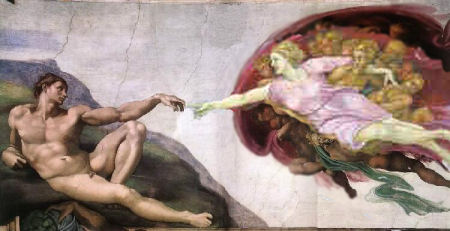By Francis DeBernardo, New Ways Ministry, September 21, 2016
On Bondings 2.0, we often report on the way that Pope Francis’ positive approach to LGBT issues is affecting the way that bishops around the world have been speaking about such topics. An article on Crux, however, tells an opposite story: that Pope Francis’ negative comments about “gender theory” and “ideological colonization” are encouraging bishops around the globe to speak similarly when marriage equality or transgender rights are discussed.
Reporter Inés San Martin looked at examples of bishops’ statements coming from Colombia, Mexico, and Spain to make the case that the pope’s ideas about gender are taking root in episcopal discourse.

In Colombia, Cardinal Rubén Salazar Gómez of Bogota and Archbishop Ettore Balestrero, the papal envoy to that nation, have recently protested the revision of school textbooks which will include discussions of gender identity, sexual orientation, and LGBT parenting. Salazar’s rhetoric closely echoes statements by Pope Francis:
“ ‘We reject the implementation of gender ideology in the Colombian education, because it’s a destructive ideology, [it] destroys the human being, taking away its fundamental principle of the complementary relationship between man and woman,’ Salazar said.
“The cardinal also said that the Church respects people with a different sexual orientation, and that as an institution it’s looking for constant opportunities for dialogue.
“ ‘Individual rights can’t go against the rights of the community,’ Salazar said. ‘What we need to accomplish is a deep respect of everyone without the imposition of ideologies.’ “
(As an aside, I would be very interested in knowing what opportunities for dialogue the cardinal seeks. It would seem that discussing the new textbook revisions with LGBT people and with the people who are supporting the changes would be an ideal opportunity for dialogue. It makes one wonder why he has not done so.)
The efforts of the churchmen were successful. According to the news article:
‘The cardinal, together with the papal envoy in the country, Archbishop Ettore Balestrero, met with president Santos and Parody the day after the rally. Soon after their meeting, the president said in a press conference that the country had no intention of promoting gender ideology, and promised the textbooks would be re-written.’

In Mexico, where marriage equality is currently an issue of national debate, Cardinal José Francisco Robles of Guadalajara, who is also president of the nation’s bishops’ conference, has also used Pope Francis’ concept of “gender ideology” to bolster opposition to the proposed federal law. Robles stated:
“The future of humanity is played in marriage and the natural family is formed by a heterosexual couple.
“The proliferation of the mentality of gender ideology moves with a flag of acceptance, promoting the values of diversity and non-discrimination, but it denies the natural reciprocity between a man and a woman.”

The example from Spain concerns remarks made by Bishop Demetrio Fernandez in opposition to a proposed law which would criminalize hate speech against LGBT people. Fernandez called the proposed law “an attack on religious freedom and freedom of conscience.” In a later interview, he strongly echoed what are probably the harshest language Pope Francis has used to discuss an LGBT topic. In an interview, the pontiff compared gender theory to nuclear arms. Fernandez statement echoing this metaphor is:
“[G]ender ideology is an atomic bomb that wants to destroy Catholic doctrine, the image of God in man, and the image of God the Creator.”
It is definitely disturbing that bishops are echoing the pope’s negative language on these topics. More disturbing, though, is the fact that the pope’s and these bishops’ words reveal an immense lack of information on gender and transgender people. For instance, the Crux article quotes Pope Francis as saying “gender theory is an error of the human mind that leads to so much confusion,” and that this view of gender is one reason why “the family is under attack.”
If the pope and bishops would listen to LGBT people’s experience, they could understand that what they claim is “theory” and “ideology” is actually a very human and holy phenomenon. They would also realize that LGBT advocates are not attacking anything, but just trying to help people live whole and full lives. Far from attacking the family, the experience of families with LGBT members shows that acceptance of these realities can promote family harmony, unity, and strength. LGBT people are not enemies of the church, but faithful members who can help it grow. Since LGBT people’s experiences are lived realities, it seems that the only people promoting “theory” and “ideology” in these discussions are the those who insist that gender binaries are set in stone.
* * * * * *
Related posts:
Bondings 2.0: “Putting Pope Francis’ “Ideology of Gender” Comments in Context”
Bondings 2.0: “Pope Francis’ Remarks on Gender in Schools Deemed Ambiguous, Out of Touch”
Bondings 2.0: “Pope’s Lament About Children and Gender Identity Reveals Serious Blind Spot”








